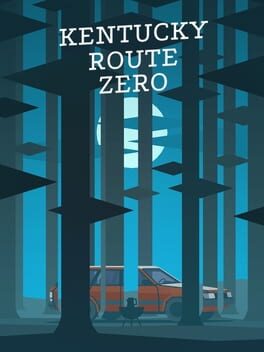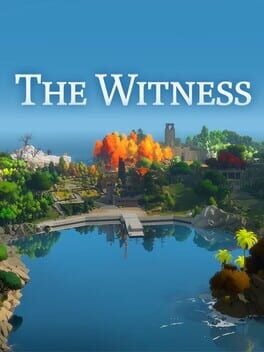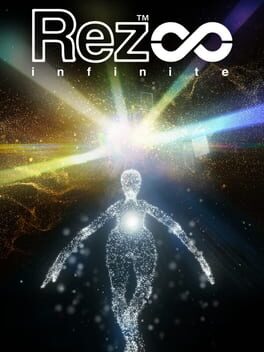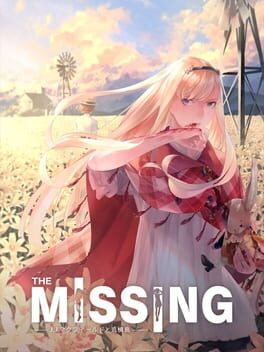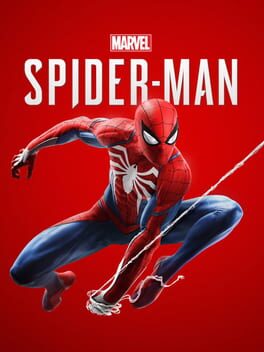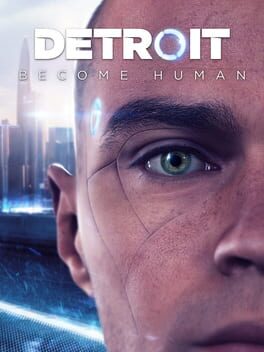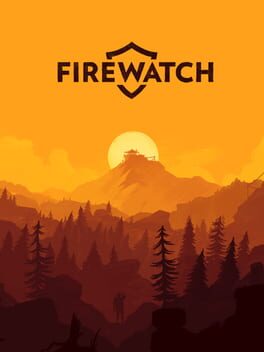ubgaming
Bio
Official account for UBgaming.
Official account for UBgaming.
Badges

Well Written
Gained 10+ likes on a single review

5 Years of Service
Being part of the Backloggd community for 5 years

Liked
Gained 10+ total review likes

Backloggd Beta Participant
Tracking games before it was cool
Favorite Games
012
Total Games Played
000
Played in 2024
000
Games Backloggd
Recently Played See More
Recently Reviewed See More
66
As the medium of games evolve, more non-traditional formats for video games appear. The point-n-click genre has inspired the new genre of shorter, more story focused games that rely more on how you experience the world than playing within the world. Despite this style of game development being fairly new, Firewatch pulls off the presentation elegantly.
Firewatch is a mystery-adventure game created by Camp Santo, a group made up of Double Fine and Telltale Games developers, creators of Psychonauts and The Walking Dead game, respectively. Henry, an unemployed divorcee, takes up a job as a fire lookout for Shoeshine National Forest, one year after the 1988 Yellowstone fires. His only contact is a walkie-talkie where he talks to his supervisor, Delilah. Once Henry and Delilah start developing a relationship, suspicious notes are left throughout the forest, starting a paranoid quest to find out who is stalking them.
Without getting into spoilers, this story is conducted beautifully, as backstory is revealed and ultimate conclusions are made. Aside from a couple of drunk teenagers, Henry and Delilah are the only voices the player hears, but they carry the story along with believable acting and natural dialogue that wraps the player up into both characters lives.
The progression of Henry and Delilah’s relationship feels very real; the lack of awkwardness between them being a playing part. Henry gets the firewatch position because he wants to be away from people after his divorce, but Delilah’s demeanor is the friendly type; she wants to know who the new guy is, what’s his deal, how’s his life.
The personality dynamic is a fantastic contrast; Henry is alone, but overtime tells himself that the barrier of the walkie-talkie doesn’t count as making contact, and the relationship progressively blossoms from there. Never seeing Delilah is what makes the relationship work, as the faux concept of a walkie-talkie not being a person let's Henry open up.
Voice acting and music, which can be described as abstract guitar playing, are the main drivers of what Camp Santo is delivering. Telltale and Double Fine have brought point-n-click into the modern era, so engrossing gameplay was expected of Firewatch. While it wasn’t bare-bones, Firewatch’s gameplay is a bit underwhelming.
Firewatch combines the sandbox-esque picking up and examining items with the option to choose Henry’s dialogue in response to Delilah's questions, answers, or sweet nothings, and...that’s about it. It doesn’t grow stale, but that’s because of what you’re interacting with rather than how interaction changes. Personal highlights of examining items stick out in my mind, particularly looking at a 4th graders evaluated essay and how close to home the teacher’s notes hit.
As charming as items can be, what you interact with feels like the glue keeping the gameplay from crumbling into boredomness. That being said, Firewatch is fairly short--an estimated 3 hours to beat, short--so the gameplay and it’s variety do stay it’s welcome just long enough.
Visually, Firewatch is nothing short of beautiful. Every area, object, and character model (that being Henry’s hands) feels hand-crafted, with a passionate color scheme applied to everything. It doesn’t feel like stepping into a painting, it’s more like the painting was made specifically for a game.
Firewatch ranges from dark nighttime blues and greens, to midday Carolina blues in the sky and pale yellows in the dead grass, to morning/afternoon oranges and purples. The juxtaposition of a thrilling story and nirvanic visuals is a brilliant mix.
Firewatch is a tale that mixes mellow atmosphere and a story with anxiety and paranoia strewn about, and creates a very complete story that is one of the best this year. That being the best thing I can say poses a bit of a problem.
Story-driven games are welcomed within gaming culture. There are many games out there that use storytelling as it’s driving factor without completely forgetting why it’s being told through this medium in the first place. Firewatch is a game thats narrative works in a video game, but it offers a very simple formula to accompany said narrative. It is there, you can interact with things, you can talk, but it’s a formula that stays the same throughout the whole experience.
While the storytelling is done brilliantly in cinematic, vocal, and pacing aspects, the gameplay feels like it’s tacked on to accompany a video game story. The conflict of wanting to portray an idea that only works with the context of a certain medium and not being able to synchronize the interactivity with the presentation is a tough one that I hope Camp Santo can deal with better.
As the medium of games evolve, more non-traditional formats for video games appear. The point-n-click genre has inspired the new genre of shorter, more story focused games that rely more on how you experience the world than playing within the world. Despite this style of game development being fairly new, Firewatch pulls off the presentation elegantly.
Firewatch is a mystery-adventure game created by Camp Santo, a group made up of Double Fine and Telltale Games developers, creators of Psychonauts and The Walking Dead game, respectively. Henry, an unemployed divorcee, takes up a job as a fire lookout for Shoeshine National Forest, one year after the 1988 Yellowstone fires. His only contact is a walkie-talkie where he talks to his supervisor, Delilah. Once Henry and Delilah start developing a relationship, suspicious notes are left throughout the forest, starting a paranoid quest to find out who is stalking them.
Without getting into spoilers, this story is conducted beautifully, as backstory is revealed and ultimate conclusions are made. Aside from a couple of drunk teenagers, Henry and Delilah are the only voices the player hears, but they carry the story along with believable acting and natural dialogue that wraps the player up into both characters lives.
The progression of Henry and Delilah’s relationship feels very real; the lack of awkwardness between them being a playing part. Henry gets the firewatch position because he wants to be away from people after his divorce, but Delilah’s demeanor is the friendly type; she wants to know who the new guy is, what’s his deal, how’s his life.
The personality dynamic is a fantastic contrast; Henry is alone, but overtime tells himself that the barrier of the walkie-talkie doesn’t count as making contact, and the relationship progressively blossoms from there. Never seeing Delilah is what makes the relationship work, as the faux concept of a walkie-talkie not being a person let's Henry open up.
Voice acting and music, which can be described as abstract guitar playing, are the main drivers of what Camp Santo is delivering. Telltale and Double Fine have brought point-n-click into the modern era, so engrossing gameplay was expected of Firewatch. While it wasn’t bare-bones, Firewatch’s gameplay is a bit underwhelming.
Firewatch combines the sandbox-esque picking up and examining items with the option to choose Henry’s dialogue in response to Delilah's questions, answers, or sweet nothings, and...that’s about it. It doesn’t grow stale, but that’s because of what you’re interacting with rather than how interaction changes. Personal highlights of examining items stick out in my mind, particularly looking at a 4th graders evaluated essay and how close to home the teacher’s notes hit.
As charming as items can be, what you interact with feels like the glue keeping the gameplay from crumbling into boredomness. That being said, Firewatch is fairly short--an estimated 3 hours to beat, short--so the gameplay and it’s variety do stay it’s welcome just long enough.
Visually, Firewatch is nothing short of beautiful. Every area, object, and character model (that being Henry’s hands) feels hand-crafted, with a passionate color scheme applied to everything. It doesn’t feel like stepping into a painting, it’s more like the painting was made specifically for a game.
Firewatch ranges from dark nighttime blues and greens, to midday Carolina blues in the sky and pale yellows in the dead grass, to morning/afternoon oranges and purples. The juxtaposition of a thrilling story and nirvanic visuals is a brilliant mix.
Firewatch is a tale that mixes mellow atmosphere and a story with anxiety and paranoia strewn about, and creates a very complete story that is one of the best this year. That being the best thing I can say poses a bit of a problem.
Story-driven games are welcomed within gaming culture. There are many games out there that use storytelling as it’s driving factor without completely forgetting why it’s being told through this medium in the first place. Firewatch is a game thats narrative works in a video game, but it offers a very simple formula to accompany said narrative. It is there, you can interact with things, you can talk, but it’s a formula that stays the same throughout the whole experience.
While the storytelling is done brilliantly in cinematic, vocal, and pacing aspects, the gameplay feels like it’s tacked on to accompany a video game story. The conflict of wanting to portray an idea that only works with the context of a certain medium and not being able to synchronize the interactivity with the presentation is a tough one that I hope Camp Santo can deal with better.
36
Self-proclaimed auteur David Cage is known for his egotistically performative attitude on “games as art,” but he still lets his games speak their own stories rather than a meta-parroting of his design ideologies. Indigo Prophecy and Heavy Rain, however flawed they may be, will live on as independent stories, “challenging” the medium by how they’re told and not what’s told. This is not the case for Detroit: Become Human.
Detroit: Become Human is not just pretentious; it’s pretentiousness in it’s purest form. The pretentiousness bleeds out from the game and into a clumsy, half-baked attempt at a meta-narrative (which obliviously turned into biting satire of itself). It is one of very few games I would genuinely call offensive and tasteless. I have no idea where to begin with what I hate about Detroit: Become Human, so let’s kick it off with a positive.
Detroit: Become Human has very good graphics. Its aesthetic style, however, is as visually bland as that sentence. Cage is hyper-focused on literally predicting the future to the point where it’s boring; it just looks like Apple stores started popping up around local neighborhoods. There’s no grittiness to the future, there’s only a clean everyman future applied to the grittiness of the modern world. It’s hard to call this game “cyberpunk,” it seems content with just being “cyber.”
Okay, now for an actual positive note: I have never seen a narrative-choice game branch out so far before. Choices do actually matter, fail-states are one-and-done and change handfuls of facets up to the end of the game. Decisions rarely have fleeting impact, where things change then slowly revert back to a one-size-fits-all conclusion; Detroit: Become Human is a game-changer (no pun intended) when it comes to narrative design. Although, it would be way better if the narrative was actually written well.
Here’s where offensive and tasteless come in. Detroit: Become Human has only one message: slavery is bad. Maybe it says more, but I can’t decipher anything else as clear-cut as that, because the game shoves gluttonous amounts of political imagery down the player’s throat so hard, you can’t help but gag.
One character, Markus, is the leader of an android resistance group. In one scene, the player can choose to march peacefully, which I did. It (very blatantly) evokes the 1965 marches from Selma to Montgomery. There’s lots of civil rights imagery that doesn’t come across well, going as far as the “fist-in-the-air” of black power movements being one of four symbols the player can choose to adopt as the new symbol for “android resistance” and graffiti over city walls.
Then I hear the phrase “android camps,” and any good faith I had in this game leaves me like a wet fart. Yes, David Cage decided to co-opt, not just imagery or evocation, but an entire setting and scene based on the Holocaust. Naturally, I’m appalled! You can’t solve the Holocaust through peaceful protest! So, as Markus, I throw away the peaceful approach and ordered my resistance team to turn to violent measures.
It was then that my brain processed these separate moments into a coherent story, and I realized that Detroit: Become Human just combined the American civil rights movement, the Holocaust, and robots into one scene. If this is David Cage’s idea of serious storytelling, I think I’d rupture something if he made a comedy game.
What makes Detroit: Become Human so unenjoyable is not just the cowardice of its non-challenging setting, nor the writing that’s so on-the-nose it picks its own boogers; the worst part is when, for a fleeting moment, I enjoy it. Those moments when I grip my controller tighter, hoping, wanting to heed Cage’s siren call of a briefly compelling scene, are the most unbearable. The story, ears plugged with wax, refuses to face that glimpse of beauty and rows into more toxic waters.
It is never in my interest to recommend substituting the personal experience of playing a game with YouTube videos, but Detroit: Become Human has so little to offer to the player, and what it does offer feels like the game taunting them for expecting better. Watch two playthroughs to ooh-n-aah at the branching paths. This is a game better off being witnessed than involved in; it makes the fremdschämen much easier to bear.
Self-proclaimed auteur David Cage is known for his egotistically performative attitude on “games as art,” but he still lets his games speak their own stories rather than a meta-parroting of his design ideologies. Indigo Prophecy and Heavy Rain, however flawed they may be, will live on as independent stories, “challenging” the medium by how they’re told and not what’s told. This is not the case for Detroit: Become Human.
Detroit: Become Human is not just pretentious; it’s pretentiousness in it’s purest form. The pretentiousness bleeds out from the game and into a clumsy, half-baked attempt at a meta-narrative (which obliviously turned into biting satire of itself). It is one of very few games I would genuinely call offensive and tasteless. I have no idea where to begin with what I hate about Detroit: Become Human, so let’s kick it off with a positive.
Detroit: Become Human has very good graphics. Its aesthetic style, however, is as visually bland as that sentence. Cage is hyper-focused on literally predicting the future to the point where it’s boring; it just looks like Apple stores started popping up around local neighborhoods. There’s no grittiness to the future, there’s only a clean everyman future applied to the grittiness of the modern world. It’s hard to call this game “cyberpunk,” it seems content with just being “cyber.”
Okay, now for an actual positive note: I have never seen a narrative-choice game branch out so far before. Choices do actually matter, fail-states are one-and-done and change handfuls of facets up to the end of the game. Decisions rarely have fleeting impact, where things change then slowly revert back to a one-size-fits-all conclusion; Detroit: Become Human is a game-changer (no pun intended) when it comes to narrative design. Although, it would be way better if the narrative was actually written well.
Here’s where offensive and tasteless come in. Detroit: Become Human has only one message: slavery is bad. Maybe it says more, but I can’t decipher anything else as clear-cut as that, because the game shoves gluttonous amounts of political imagery down the player’s throat so hard, you can’t help but gag.
One character, Markus, is the leader of an android resistance group. In one scene, the player can choose to march peacefully, which I did. It (very blatantly) evokes the 1965 marches from Selma to Montgomery. There’s lots of civil rights imagery that doesn’t come across well, going as far as the “fist-in-the-air” of black power movements being one of four symbols the player can choose to adopt as the new symbol for “android resistance” and graffiti over city walls.
Then I hear the phrase “android camps,” and any good faith I had in this game leaves me like a wet fart. Yes, David Cage decided to co-opt, not just imagery or evocation, but an entire setting and scene based on the Holocaust. Naturally, I’m appalled! You can’t solve the Holocaust through peaceful protest! So, as Markus, I throw away the peaceful approach and ordered my resistance team to turn to violent measures.
It was then that my brain processed these separate moments into a coherent story, and I realized that Detroit: Become Human just combined the American civil rights movement, the Holocaust, and robots into one scene. If this is David Cage’s idea of serious storytelling, I think I’d rupture something if he made a comedy game.
What makes Detroit: Become Human so unenjoyable is not just the cowardice of its non-challenging setting, nor the writing that’s so on-the-nose it picks its own boogers; the worst part is when, for a fleeting moment, I enjoy it. Those moments when I grip my controller tighter, hoping, wanting to heed Cage’s siren call of a briefly compelling scene, are the most unbearable. The story, ears plugged with wax, refuses to face that glimpse of beauty and rows into more toxic waters.
It is never in my interest to recommend substituting the personal experience of playing a game with YouTube videos, but Detroit: Become Human has so little to offer to the player, and what it does offer feels like the game taunting them for expecting better. Watch two playthroughs to ooh-n-aah at the branching paths. This is a game better off being witnessed than involved in; it makes the fremdschämen much easier to bear.
98
I recall the exact moment Celeste crushed me. It wasn't the intimidation of the mountain's many obstacles, or one of the hundreds of deaths that befell our hero, Madeline. It was a monologue from Madeline that shifted my perception of the game entirely. When asked why she's climbing the mountain in the first place, the only answer she can muster after detailing a lifelong battle with depression is: "I need something to challenge me. And I can't just do something a little bit. It's all of me or nothing."
No longer did I believe Celeste was focused solely on platforming, smooth as gelatin and tough as gemstone. The act of climbing the mountain became a question that I've asked myself many-a-time when struggling with staying determined: why are you doing this in the first place? Is it worth it in the end? Do you want to succeed or are you just fighting through gritted teeth at this point? While titles like Undertale depict the strength determination can give through epic, feel-good finales, Celeste questions how to utilize that strength every step of the way.
Celeste is a hard game, but it's attitude towards the player is what makes the difficulty stand out in the "masocore" genre. I admire the usual snark from God Hand or RUINER, but Celeste's gentle demeanor is refreshing, to say the least. The mountain's obstacles are split into "screens," where failure only means lightning-quick, no-pressure respawns, but such a choice in design is countered by the amount of architectural study required to bypass such obstacles, let alone with grace. Expose yourself to Celeste, methodically or through brute-force, and it starts to rope you into a hypnotizing, yet motivational pattern.
Madeline gets closer and closer to the mountain's peak. New mechanics are introduced at every chapter. A rhythm starts to build; the player's air dashes and wall climbing go at the same tempo of falling into spikes and bursting into light. Death begins to feel like part of the player's moveset, beats between failure and retrying fade away, mistakes are miracles. This is how Celeste becomes your ringside coach, the Mickey Goldmill of masocore. It never lets up but it never lets you down.
Let's go back to Madeline; as the quote shows, her story is a deeply personal one. Throughout the game, Madeline encounters a "Part of Her," a recolored, ghostly Madeline that tries to convince her how this trek is just a pipe dream, and she ought to give up already. I haven't seen many reviewers mention the quality of Celeste's narrative; I was completely gripped by how Madeline comes to terms with that Part of Her, the conversations the two have with each other. In arguments, Madeline begins to have panic attacks. The screen fills with protruding purple branches, groping at Madeline as her anxiety swells further. How the player soothes Madeline anxiety and how her relationship with herself evolves is something I dare not spoil; for now I can only admire Celeste for intertwining such uncomfortable topics and the tact used to tackle them with platforming you can lose yourself in.
Of course, Celeste does have an assist mode, and rather than having an "easy" button, players can slow down game speed, toggle invincibility, increase the max number of dashes they can use without stopping, etc. It trusts the player to use this tool at their discretion, only if their experience jumps from mentally challenging to physically impossible. Celeste has a very personal story to tell, one meant to be played personally. I've been needing a new pick-up-n-play title on my Switch; perhaps I'll recover from the emotional whiplash once I collect all 180 strawberries. I know nothing can stop me now.
I recall the exact moment Celeste crushed me. It wasn't the intimidation of the mountain's many obstacles, or one of the hundreds of deaths that befell our hero, Madeline. It was a monologue from Madeline that shifted my perception of the game entirely. When asked why she's climbing the mountain in the first place, the only answer she can muster after detailing a lifelong battle with depression is: "I need something to challenge me. And I can't just do something a little bit. It's all of me or nothing."
No longer did I believe Celeste was focused solely on platforming, smooth as gelatin and tough as gemstone. The act of climbing the mountain became a question that I've asked myself many-a-time when struggling with staying determined: why are you doing this in the first place? Is it worth it in the end? Do you want to succeed or are you just fighting through gritted teeth at this point? While titles like Undertale depict the strength determination can give through epic, feel-good finales, Celeste questions how to utilize that strength every step of the way.
Celeste is a hard game, but it's attitude towards the player is what makes the difficulty stand out in the "masocore" genre. I admire the usual snark from God Hand or RUINER, but Celeste's gentle demeanor is refreshing, to say the least. The mountain's obstacles are split into "screens," where failure only means lightning-quick, no-pressure respawns, but such a choice in design is countered by the amount of architectural study required to bypass such obstacles, let alone with grace. Expose yourself to Celeste, methodically or through brute-force, and it starts to rope you into a hypnotizing, yet motivational pattern.
Madeline gets closer and closer to the mountain's peak. New mechanics are introduced at every chapter. A rhythm starts to build; the player's air dashes and wall climbing go at the same tempo of falling into spikes and bursting into light. Death begins to feel like part of the player's moveset, beats between failure and retrying fade away, mistakes are miracles. This is how Celeste becomes your ringside coach, the Mickey Goldmill of masocore. It never lets up but it never lets you down.
Let's go back to Madeline; as the quote shows, her story is a deeply personal one. Throughout the game, Madeline encounters a "Part of Her," a recolored, ghostly Madeline that tries to convince her how this trek is just a pipe dream, and she ought to give up already. I haven't seen many reviewers mention the quality of Celeste's narrative; I was completely gripped by how Madeline comes to terms with that Part of Her, the conversations the two have with each other. In arguments, Madeline begins to have panic attacks. The screen fills with protruding purple branches, groping at Madeline as her anxiety swells further. How the player soothes Madeline anxiety and how her relationship with herself evolves is something I dare not spoil; for now I can only admire Celeste for intertwining such uncomfortable topics and the tact used to tackle them with platforming you can lose yourself in.
Of course, Celeste does have an assist mode, and rather than having an "easy" button, players can slow down game speed, toggle invincibility, increase the max number of dashes they can use without stopping, etc. It trusts the player to use this tool at their discretion, only if their experience jumps from mentally challenging to physically impossible. Celeste has a very personal story to tell, one meant to be played personally. I've been needing a new pick-up-n-play title on my Switch; perhaps I'll recover from the emotional whiplash once I collect all 180 strawberries. I know nothing can stop me now.
